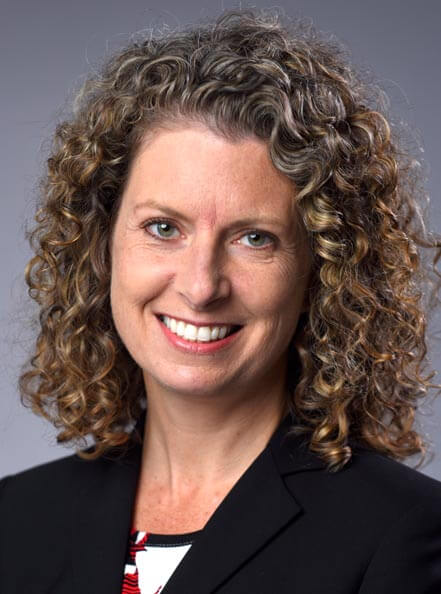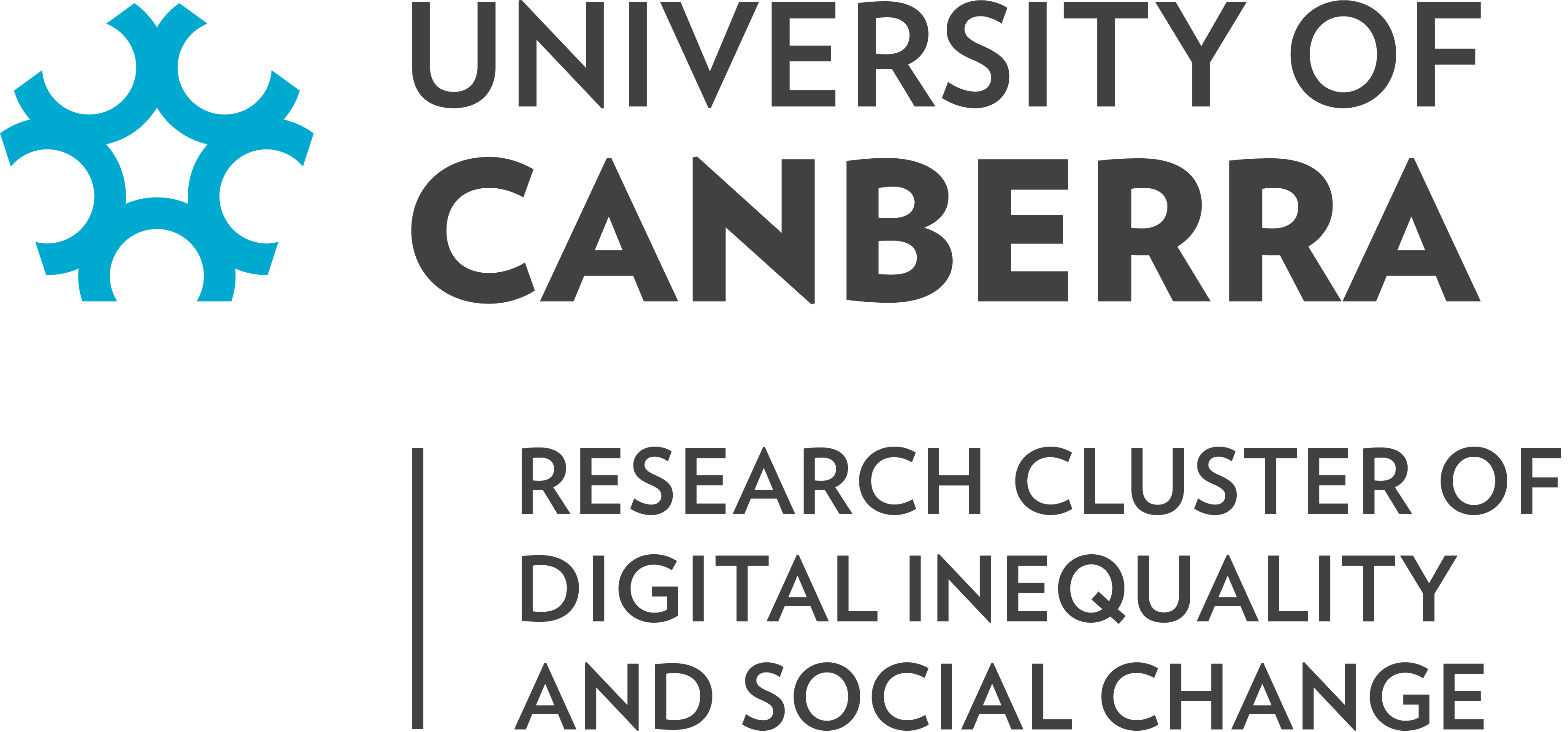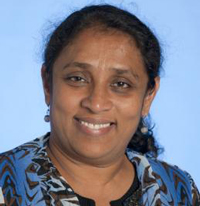Symposium on Personalised Learning

|  |
ACT Education Directorate | Faculty of Education |
proudly present a .  . .
. .
Symposium on Personalised Learning
What is it and could it work in your school?
How does it align with ACT ED's Future of Education Strategy?
And what about the future vision of other Australian Educational jurisdictions?
BOOK NOW
to reserve your place at each session of the Symposium.
 Click here to book via Eventbrite
Click here to book via Eventbrite

Our distinguished guest is
Professor Penny Bishop
University of Maine, USA

The Symposium is supported by UC's Research Cluster of Digital Inequality and Social Change.
If you have any questions about the event please contact the event organisers.
What This symposium aims to generate rich dialogue between researchers, school leaders and teachers in relation to the complex landscape of personalised learning.
How The Faculty of Education at the University of Canberra will bring together ACT policy and decision makers, school leaders and teachers, with leading international and national researchers in the space of personalised learning.
Who Speakers include Professor Penny Bishop for the USA, Assistant Professor Maya Gunawardena from UC, and other expert scholars from the ACT and NSW Education jurisdictions.
Why This symposium will revisit the discourses surrounding personalised learning and provoke and encourage active discussion around what this means for the key stakeholders in education.
The symposium was
in hybrid mode
on Thursday, 8 June 2023
at University of Canberra and online
| Program Overview |
|---|
9.30 to 10.00Registration |
10.00 to 10.30 |
WelcomeProfessor Geoff CrispIntroductionProfessor Barney Dalgarno |
10.30 to 11.30 |
Keynote addressPersonalised learning: Learning from a US PerspectiveProfessor Penny Bishop - University of Maine, USA |
LUNCH AND NETWORKING |
1.00 to 2.00 |
Panel Discussion 1Conversations with education leaders & pioneer researchersLed by Emily HillsPanellists: Prof. Bishop, Kate Woods (ACTED - Principal, Margaret Hendry School), Alex Nagy (ACTED - Director, Enabling Pedagogies), Fiona Senior-Conroy (NSW Department of Education - Director, Educational Leadership, Queanbeyan Network) |
BREAK |
2.30 to 3.30 |
Panel Discussion 2Provocations for practicing teachersLed by Dr. Tamsyn Terry and Dr. Sitti PatahuddinPanellists: Shannon Birch and Lachlan Ferguson (Margaret Hendry School), and Amelia Machen and Steven Sengstock (Gold Creek High School) |
BREAK |
4.00 to 6.00 |
WorkshopPersonalised learning: “Placing students at the centre” |
- comprehensive session details
- recordings and/or presentation slides of each session.
_________________________________
Each Session took place in the Inspire Centre, University of Canberra, and online.
The symposium opened with a
Welcome from UC's Deputy Vice Chancellor Academic, Professor Geoff Crisp, and an
Introduction by the Executive Dean, Faculty of Educaiton, Professor Barney Dalgano.
KEYNOTE ADDRESS
Personalised learning: Learning from a US Perspective
Drawing on her experience leading school change initiatives in the United States, Dr. Penny Bishop will explore the concept of personalised learning as a partnership between learners and teachers. Debunking the common myth that personalisation is isolating or overly reliant on technology, she will share research and examples that illustrate the potential of personalisation to engage learners, promote student agency, and advance self-direction. She will also offer lessons learned from the challenges related to enacting personalized learning in compulsory school classrooms, and explore the collaborative school cultures that help educators grow and evolve during these changing times.
The session took place in the Teal Room in the Inspire Centre (Building 25, UC).
It was also available to attend online.
| Time | Speaker | Speaker Biography |
|---|---|---|
| 10.30 to 11.30 | Professor Penny Bishop - University of Maine, USA | Penny Bishop is Professor and Dean of the College of Education and Human Development at the University of Maine. Her research focuses on the provision of responsive learning environments for young adolescents, and she has received more than $13 million in external funding to support this work. She is a former middle school and secondary school teacher and the recipient of the John H. Lounsbury Award for Distinguished Achievement in Middle Level Education from the Association for Middle Level Education (AMLE) and the James P. Garvin Distinguished Service Award from the New England League of Middle Schools. She has co-authored seven books on education reform, the most recent being “The Successful Middle School: This We Believe” (AMLE) and “Personalized Learning in the Middle Grades” (Harvard Education Press). Dr. Bishop is Executive Advisor to the Middle Grades Education Research Special Interest Group of the American Educational Research Association; co-director of the Middle Grades Collaborative; former chair of the Research Advisory Board of the Association for Middle Level Education; and co-editor of the Middle Grades Review. She served as founding director of the University of Vermont’s Tarrant Institute for Innovative Education from 2009–17. Her research has appeared in journals such as Elementary School Journal, Middle School Journal, Teacher Education and Practice, Middle Grades Research Journal, and Research in Middle Level Education |
PANEL DISCUSSION 1
Conversations with education leaders & pioneer researchers
In this session, participants will hear from panelists, experienced leaders, about the perceived relevance, citing related policies, legislatures, research and the measures for enacting personalised learning across different contexts. The participants will gain insights into different approaches to personalised learning based on research and experience. Time will be provided for participants to ask the panel questions about how they can continue to develop their personalised learning practices in their own settings. It will ignite useful dialogues to continue to explore personalised learning in Australia and beyond.
The session took place in the Teal Room in the Inspire Centre (Building 25, UC).
It was available to attend online.
Here is a recording of the session.
Sorry for the video perspective with particular apologies to Fiona Senior-Conroy.
The quality of the conversation makes it worth watching / listening.
| Time | Panellists | Panellist Biographies |
|---|---|---|
| 1.00 to 2.00 | Penny BishopUniversity of Maine, USA | Penny is Professor and Dean of the College of Education and Human Development at the University of Maine. Her research focuses on the provision of responsive learning environments for young adolescents, and she has received more than $13 million in external funding to support this work. She is a former middle school and secondary school teacher and the recipient of the John H. Lounsbury Award for Distinguished Achievement in Middle Level Education from the Association for Middle Level Education (AMLE) and the James P. Garvin Distinguished Service Award from the New England League of Middle Schools. |
Kate WoodsACTED - Principal, Margaret Hendry School | Kate is the inaugural Principal of Margaret Hendry School, located in Canberra ACT. Kate has established an innovative learning environment where learning is inherently playful and children’s learning is characterised by choice, voice and agency. Kate is recognised as a leader of innovation in education, being named as one of The Educator’s most innovative schools of 2020 and being selected as a finalist for Excellence in Innovation in the ACT Public Education Awards 2022. Her philosophy for leadership is centrered around the growth, development and empowerment of all within the learning community and beyond, with a strong emphasis on community partnerships and authentic learning opportunities that contribute to the greater good of society. Kate is co-chair of the PRIDE network for the ACT Education Directorate and sits on the Board for the ACT Chapter for Learning Environments Australasia. | |
Alex Nagy - B.Ed (Sec)ACTED - Director, Enabling Pedagogies | Alex’s current role is Director Enabling Pedagogies in the Teaching and Learning Team of the ACT Education Directorate. Alex has 27 years teaching and leading in the ACT Education Directorate, with a background in Science and Mathematics. He has worked in diverse schools across the ACT including; Telopea Park, Melrose High, Kambah High, Hawker College, Melba High, Alfred Deakin High, Harrison School and Flexible Education. | |
Fiona Senior-ConroyNSW Department of Education - Director, Educational Leadership, Queanbeyan Network | Fiona is a senior member of the NSW Department of Education, holding the position of Director Educational Leadership Queanbeyan Network. Fiona has professional connections, management and leadership responsibilities of over twenty schools in the Queanbeyan Network. Her schools are members of the Capital Region of schools. She has provided the University considerable strategic and practical support in maintaining the ongoing relationships between the NSW Department of Education and the Faculty of Education. She is highly respected by her colleagues and in the NSW educational community. Her commitment to education has ensured the continued development of the partnership between the Department and the University of Canberra. Fiona’s support has ensured an increase in the provision of support for pre-service teacher education, the ongoing participation of NSW teachers and leaders in the Master of Education Program and the development of the Clinical Teaching Model. Fiona was, as consequence of the close links she has with UC, made an Adjunct Associate Professor in 2021. |
Panel Discussion 2
Provocations for practicing teachers
Led by Dr. Tamsyn Terry and Dr. Sitti Patahuddin
In this session, schoolteachers will share their perspectives and experiences on how they enact approaches for personalised learning in their compulsory schools and classrooms. They will reflect on the criticism that personalised learning increases teacher workload and the view that personalised learning is teachers' ideology. The audience will have an opportunity to question panelists about practicalities, challenges and how teachers respond to these challenges. The panelists will also share their strategies for overcoming obstacles to creating a strong community of learning.
The session took place in the Teal Room in the Inspire Centre (Building 25, UC).
It was available to attend online.
Here is a recording of the session.
| Time | Panellists | Panellist Biographies |
|---|---|---|
| 2.30 to 3.30 | Shannon BirchDeputy Principal | Shannon began her educational career in the Northern Territory, crediting her 10 years of teaching and leading schools in the Northern Territory as the catalyst for improving learning outcomes for children through a personalised approach to learning. Over the course of 20 years and in various educational settings (early childhood schools, P-10 schools and urban and semi remote P-6 schools) Shannon has collaboratively led school communities to co create a culture of learning with real world relevance and focused on point of need learning. Shannon is an instructional leader with a comprehensive knowledge base aligned to innovative educational approaches and empowering pedagogy. Shannon is a member of local, national and global networks aimed at exploring and embedding innovative teaching and learning approaches and travels globally visiting other educational jurisdictions to deepen her knowledge base. Shannon values creative, empowering and disruptive thinking to drive educational reform in ways that truly meet the needs of children now and into the future. |
Lachlan FergusonK – 6 learning coach, Acting SLC | Lachlan began his career in education whilst growing up in Canberra working in sports programs, coaching and supporting children in before and after school care programs. Through these experiences he developed a love of learning and teaching that lead to studying Primary school teaching at UC. Over the 10 years of his career Lachlan has taught across the world including 5 years in Melbourne, 4 years in the United Kingdom and now another 1 year back in Australia. Lachlan has experience leading in ICT, Maths and Humanities and threads inquiry and personalised learning through all areas of his teaching. With a strong background in sports coaching, Lachlan has a strong emphasis on goal setting and inspiring children and adults to strive for their best and leave a legacy behind them. He has recently begun working as a school leader and is using his passion as a life long learner to guide positive change in his school community and across the educational sphere. | |
Amelia MachenGold Creek High School | Amelia embarked on her teaching career 11 years ago, gaining experience in Queensland, New South Wales, and the ACT, where she adeptly navigated the Australian Curriculum and International Baccalaureate. With a background in Foster Care, she recognized the importance of finding unique sparks of interest in every student to ignite their love for learning, understanding that for some, school may be of lesser importance in their daily lives. As a specialized Design and Technology teacher, focusing on Textiles and Food, Amelia was driven to infuse more STEM elements into her subjects, leading her to teach STEM and Digital Technology to Year 7 and 8 students. In 2019, she secured a prestigious fellowship with Northrop Grumman and the National Science Teachers Association, traveling to the USA to connect with like-minded individuals and inspire a passion for learning among young people. Although unable to return the following year as a mentor due to lockdown, Amelia currently serves as the Gifted and Talented Coordinator, facilitating an Enrichment class that encourages self-guided, enjoyable learning experiences. She also established an after-school Maker Space where students can explore innovative technologies and take ownership of their educational journeys. A fervent educator and learner, Amelia guides her students in finding their passions while fostering creativity and satisfaction through the design and production of personally meaningful products. | |
Steven SengstockM.Ed., Reading and Literacy; Indonesian and French Language Acquisition teacher | Steven has been teaching languages in high school and private settings for 15 years since changing careers from Defence. He is an educator and representative chess coach committed to building learning self-belief and aspirational thinking among his students. Steven is a strong advocate for cross-curricular literacy development, having led action research supporting non-Language arts teachers improve practice in this space. For optimal personalised learning, Steven considers it vital for teachers to rapidly measure and respond to student levels of self-efficacy in their subject area. |
WORKSHOP
Personalised learning: “Placing students at the centre”
Demystifying the myths for practicality, possibility, and improved success
With Prof. Penny Bishop and Dr. Maya Gunawardena
This workshop led by Professor Penny Bishop and Assistant Professor Maya Gunawardena will offer interactive activities for the audiences to problematise personalise in the context of Australian classrooms. Audiences will critically evaluate current myths, critique, complexities and overlapping concepts to understand the practicalities and possibilities within personalised learning. It will examine the aspirational goals in the ACT 2022-2025 Education Strategic Plan to understand how to enact some within the existing constraints. The session will help participants to reflect on the strategies that they currently use to understand every child’s stories to ignite their passion and interest to drive their learning. It will offer strategies for curriculum negotiation co-design learning taking learner assets into consideration. The audiences can network with other participants and discuss their experiences and ideas.
The session took place in the Teal Room in the Inspire Centre (Building 25, UC).
It was also available to attend online.
A recording will not be reproduced here.
| Time | Workshop Leaders | Workshop Leader Biographies |
|---|---|---|
| 4.00 to 6.00 | Professor Penny BishopUniversity of Maine, USA | Penny Bishop is Professor and Dean of the College of Education and Human Development at the University of Maine. Her research focuses on the provision of responsive learning environments for young adolescents, and she has received more than $13 million in external funding to support this work. She is a former middle school and secondary school teacher and the recipient of the John H. Lounsbury Award for Distinguished Achievement in Middle Level Education from the Association for Middle Level Education (AMLE) and the James P. Garvin Distinguished Service Award from the New England League of Middle Schools. She has co-authored seven books on education reform, the most recent being “The Successful Middle School: This We Believe” (AMLE) and “Personalized Learning in the Middle Grades” (Harvard Education Press). Dr. Bishop is Executive Advisor to the Middle Grades Education Research Special Interest Group of the American Educational Research Association; co-director of the Middle Grades Collaborative; former chair of the Research Advisory Board of the Association for Middle Level Education; and co-editor of the Middle Grades Review. She served as founding director of the University of Vermont’s Tarrant Institute for Innovative Education from 2009–17. Her research has appeared in journals such as Elementary School Journal, Middle School Journal, Teacher Education and Practice, Middle Grades Research Journal, and Research in Middle Level Education |
Doctor Maya GunawardenaUniversity of Canberra, Australia
| Maya Gunawardena is currently an assistant professor in teacher education and Program Director of the Teaching English as a Second or Other Language (TESOL) program at the Faculty of Education, University of Canberra. She formerly worked as a lecturer and a research fellow at UNSW. She is interested in empowering teachers with the knowledge of ecologies and epistemologies of learning sciences. Her research includes topics such as personalized learning, teacher beliefs and application of their pedagogical content knowledge, learning experiences and materials design, scaffolding students’ higher-order thinking, and practice of evidence-based learning. She has extensive experience in teaching in K-12 classrooms and tertiary institutes in Australia and Sri Lanka. Maya obtained her PhD in Education from University of Canberra. She obtained her Master’s degree in Language Teaching from University of Lancaster, UK and Master’s in Linguistics from University of Kelaniya, Sri Lanka. She currently researches and publishes in the fields of teacher education, applied linguistics, and literacy and TESOL teaching. |


